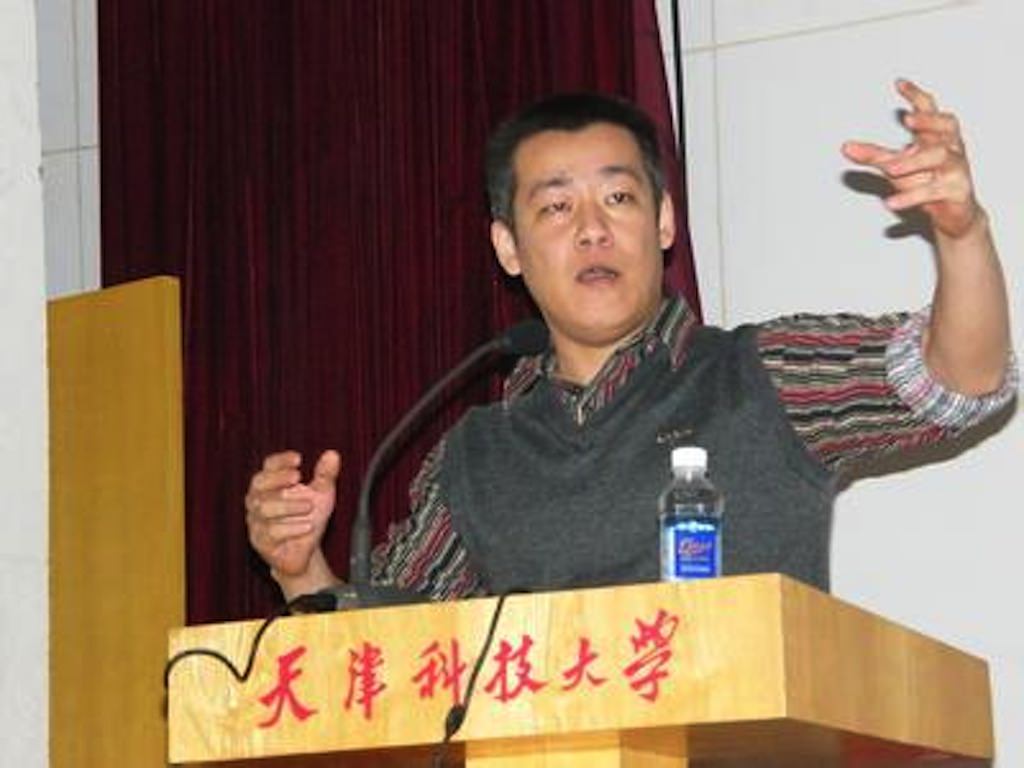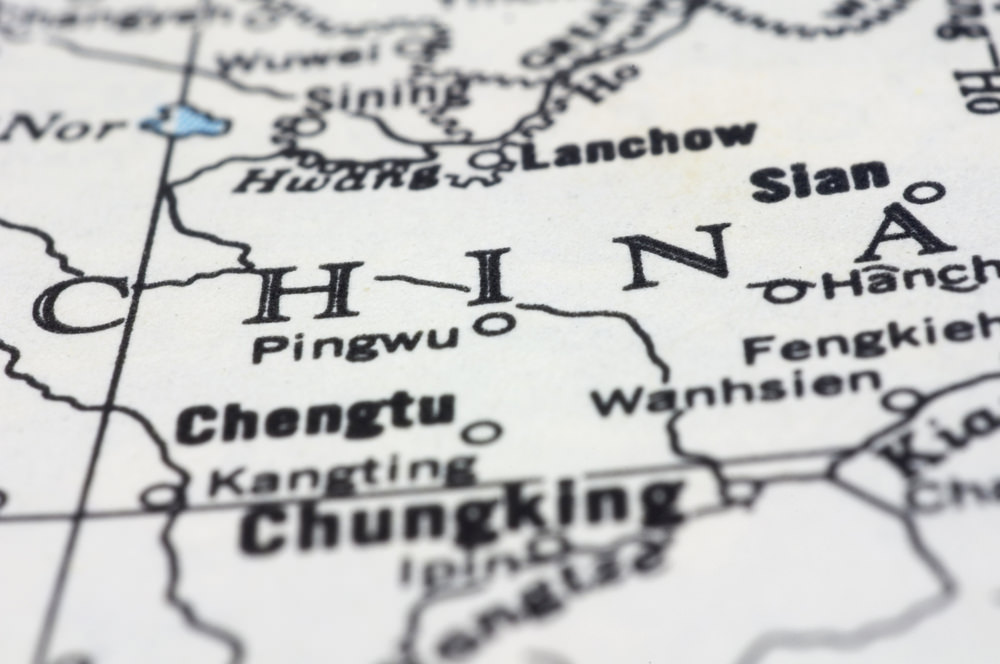
Meet China's Biggest Bitcoin Multi-Millionaire
This article was originally posted by Eric Mu on Danwei, a Chinese media and Internet tracking news site.
Hidden in a pedestrian-only lane in Beijing’s tech district of Zhongguancun, Cheku Café (车库咖啡厅) is not easy to find and appears to be an unassuming eatery like its neighbors.
But if you climb up the dark staircase, you’ll blunder into what appears to be a university library: youngsters scattered around scores of desks in a large, cavernous room, gazing, typing on the glowing screens, chattering, laughing and napping.
The name Cheku, meaning garage, speaks of ambition by alluding to tech giant Apple’s rather humble origins. Some believe that China’s equivalents of the Cupertino tech giant may begin in this place: the idea of the café is to provide startup tech companies a communal office where rent is cheap and entrepreneurs can communicate, inspire each other and conceive ideas.
One evening last week I visited Cheku. At about 6.30pm, the room began to fill up. People conversed with familiarity, even though many had never previously met. For an outsider, the conversations were a little bewildering: “How many coins do you possess? How did you get them?”
Aside from its reputation as a tech hub, Cheku Café was chosen to host the event because of something that happened in March this year: an American student named Jake Smith asked if he could pay for his cup of coffee with bitcoins.
With hindsight, the 0.2 bitcoins he handed over now looks a high price to pay for the beverage, though for some of the bitcoiners I met at Cheku Café, they believe the incident will go down in history.
Origins
In the second week of November, the exchange rate of bitcoin to major currencies took a sudden jump, with its value more than doubling within a week.
As of 20th November, bitcoin was trading around $500 per coin, triggering speculation that the bitcoin “bubble” is being driven by strong demand from China, an argument that is supported by strong volume increases observed on Chinese bitcoin exchange websites such as BTC China and Huobi.com.
The first “cryptocurrency” in the world, apparently invented by a person or group known to the world as Satoshi Nakamoto, bitcoin was born with the mission to solve the intrinsic flaws of fiat currencies and early digital currencies: inflation, double-spending, counterfeiting, cash robbery etc.
The assumptions that the system is based on is that the majority of participants are honest. Every transaction needs to be confirmed by all the participants.
In theory, a group of cheaters could take control of the currency if they acquired more computing power than all the other users – a condition that hasn’t even come close to materializing. Yet, the protocol is open source and it offers transparency no banking system can compete with.
Many believe that the most promising application for bitcoin is for online payments. Unlike using a credit card, payment made with bitcoin don't carry a transaction fee (though one can opt to pay a small amount for faster confirmation speed) and though every transaction is documented, it can only be traced to the virtual account that holds the bitcoin, but not real world payers.
Thanks to this anonymity, bitcoin gained a little notoriety for being used for drug sales and money laundering. When the FBI shut down Silk Road, an online narcotics marketplace that used bitcoin as primary currency, the exchange rate tanked more than 40% in one day.
A Chinese bitcoin multi-millionaire

via Shutterstock
Li Xiaolai, was a speaker at the event I attended at Cheku Café. He is perhaps the most famous figure in the Chinese bitcoin world.
Li admitted on one occasion that his bitcoin holdings are a six digit amount. The exchange rate at the time of writing values that at more than $50m, but such comparison may not do bitcoin justice as unlike $50m, 100,000 bitcoins is about 1/100 of all existing bitcoins. The world’s most famous bitcoin millionaires are the Winklevoss twins who own 120,000 bitcoins.
Li, 41, studied accounting at college. Following graduation he worked as a salesman, and later as an English teacher. Li said on one occasion that English teaching is really just a type of sales in China: with millions of young Chinese aspiring to go abroad, English teaching is essentially selling a dream.
Li also published several books such as “Breakthrough on TOEFL essential vocabulary in 21 days”, “How to get high scores in TOEFL essay”. But he did not make much money from these endeavors.
In the first two years after the first bitcoins were minted in 2009, the virtual currency was used among geeks and worth no more than a few cents.
Few people knew about them. Stories of a man spending 10,000 bitcoins to buy a pizza and of a hacker attack that sent the price down by half began to interest the media and global interest in the currency grew.
Li recounted his roller coaster trip starting from the year when his employer, the test cramming school operator New Oriental, went public. As a new employee, Li was allowed to buy a small number of pre-IPO shares.
While the company was well received at the New York Exchange, many of Li’s colleagues had fears that the company was overvalued and did not have a bright future, which Li described as “insider’s pessimism”. Li decided he wanted to invest his money elsewhere, and this was when he found out about bitcoin.
Li described the moment when he first learned about bitcoin and Satoshi Nakamoto. The idea was so elegant that Li wasted no time in finding the paper by Satoshi Nakamoto on the Internet.
Although he couldn’t understand it completely, it didn’t prevent him from selling all his shares and loading up on bitcoins. He was convinced that this thing was going to be big.
In the days that followed, Li said he had many sleepless nights, but as his bitcoins grew in value, he decided to expand his profits by investing in a container worth of computers for mining.
Mining
In the paper Bitcoin: A Peer-to-peer electronic cash system, Satoshi Nakamoto explained bitcoin mining:
One brilliant touch is unifying the self-interest and well being of community. Newly created bitcoins are used to compensate miners who spent computing power and electricity to process transactions, and keep the network healthy.
While the miners may be perfectly self-interested in their endeavor, their selfishness is essential to the system. The speed of new coins being injected into the system is also designed to slow down as time passes and more people join the bitcoin economy.
By artificially increasing the difficulty, the miners are forced to upgrade their equipment constantly, to gain advantage in the competition for coins. When Li realized this, he divested his mining venture.
Today, he focuses on bitcoin lending – large transactions of coins usually happen offline to avoid radical fluctuations of value. Since there is no law regarding bitcoin trades, people like Li who have a reputation are usually invited to act as a guarantor in the deal.
Infrastructure and industry

via Shutterstock
Many compare bitcoin with a gold rush – not only that gold was hard to find but that those that sell shovels end up making more money than people who actually do the mining.
A Shenzhen-based company called ASICminer, founded in early 2012 by three new college graduates, has been making tens of millions by making specialized miners.
computers need to have a special type of microchip that is an application-specific integrated circuit, or ASIC. In the early days, there were only three companies – two based in China, producing the bitcoin ASIC chips, the margins were high: One mining machine that cost 2,000 yuan ($328) to build could be sold for 40,000 yuan.
ASICminer also uses a novel way of fund raising. The company issued virtual stocks which investors buy using bitcoins. Dividends are also paid in bitcoins. 796.com, a virtual share and futures trading exchange, has four stocks being traded, including ASICminer.
At the time of writing, the stock was trading at 0.0048 bitcoin per share, a fraction of what it was at the beginning of the year, though many investors have earned enough in dividends to cover their losses.
Li Xiaolai is an investor in ASICminer, and has been with the company for a while, but said that he would not recommend it for the faint-hearted as radical fluctuations are common in the bitcoin world.
Regulation may be around the corner
The idea of a decentralized currency means that bitcoin can work with or without a government, something not all governments may accept with grace.
Compounding the potential annoyance to governments is that sales made in bitcoins are often un-taxable, and once people start using bitcoin in preference to fiat money, it will necessarily result in loss of tax income.
Many predict that governments will eventually bring the unruly bitcoin under its reins.
But perhaps not: the FBI itself has acknowledged that “Bitcoins are not illegal in and of themselves and have known legitimate uses.”
The worst case scenario for bitcoiners is that governments will seek to shut down the whole system. Many believe that it is impossible given its peer to peer decentralized nature. There is no central sever to take down.
Unless governments begin a long and determined campaign of arresting people who own or use bitcoin, it will be very difficult to destroy it, but a hostile stance from the authorities would undoubtedly hurt speculators’ confidence.
Original: If the US or Chinese governments outlaw bitcoin, the value may take a big dive, but in the long term, many bitcoiners believe, it will bounce back and grow as it did before.
Editor's note: China's central bank has just announced its stance on bitcoin, which had a significant impact on the price.
For a dedicated bitcoiner like Li, the ups and downs only serve to make him identify with bitcoin more strongly. A true bitcoiner is not an investor in the typical sense of the word, since they see owning bitcoins as even more desirable than owning fiat money and are determined to go through the odds, with great indifference to the financial outcome.
At the Cheku Café event, rarely did anyone ask about other types of money: they just wanted to know how many bitcoins you possessed.
Li said that he owns no real estate and no car, his assets are almost all virtual. He also described his own situation as a dilemma – if bitcoin took a drop, he would lose a fortune, but only when you think from the perspective of fiat money.
From the perspective of a bitcoiner, he would rather that bitcoin lose value so he could do what he once was capable of doing: buy thousands of bitcoins in one go.
Passport to the future and USA
“This is the first time in history that human beings have found a way to ensure the inviolability of personal property,” said Li in a celebratory tone, “If you remember, two years ago, I posted on Twitter that I would do something I called a ‘virtual immigration’.”
When I asked my travel agent to obtain a visa for me, he said it couldn’t be done because I had no house, no car – the car I drive is registered under my friend’s name and my bank account balance is a joke.
Do you know the easiest way to immigrate to the US? You get a travel visa and board an airliner, and you never come back. But if it was that easy, why don't most of you do it? Come on, be honest, you don’t want to live in this place, do you? The answer is that you have all your assets locked here.
Li finally got his green card. His story may be the start of a trend. The Winklevoss twins warned American regulators not to push innovation out of the US and into China.
While there is no sign of China beating the US in creating a bitcoin economy, with bitcoin making asset relocation so easy, one can foresee waves of Chinese bitcoin immigrants hitting the American shores in a future not so remote.
Finale
Many believe that the fate of bitcoin is connected to whether it will be adopted by enough people so that one can pay bills easily with it. Li does not believe bitcoin will replace fiat money any time soon.
As long as it stays a perfect speculative vehicle, Li is happy. “If you can’t buy a breakfast with gold, does it make your gold less valuable?” Asked Mr. Li rhetorically.
This gives rise to another question – As bitcoins continue to appreciate, will it send the world into a deflationary spiral because it rewards hoarding and discourages spending? This is a view held by many bitcoin critics, including prominent economist Paul Krugman. Some think that a coin worth hundreds of dollars is a ridiculous idea.
Bitcoin’s answer to the deflationary spiral question is infinite divisibility. Even if the world had only one bitcoin, it is more than enough for all the people, because it can be divided infinitive times.
My own observations at the Cheku Café event seems to indicate that people will not just hoard them. The American student who spent 0.2 bitcoins didn’t cry for being overcharged. If anything, the true believers tend to be more generous as their way of seeing money has changed.
This year, shortly after an earthquake in Meishan, Sichuan Earthquake, Li Xiaolai organized a bitcoin donation. About 40 bitcoins were raised to help the quake victims. Like many bitcoiners, Li seeks to create a positive image for the community as charitable and responsible, rather than shady money grabbers or drug traffickers.
The event concluded on a hopeful note when the host proposed a bitcoin trade. Anyone could buy or sell their coins. One person offered to sell ten coins at a price one hundred yuan lower than the standard exchange rate that evening. The coins were quickly snapped up by two buyers.
It seems that bitcoiners don’t have the resistance to part with their coins that some economists see as the cryptocurrency’s biggest problem.
Feature image: Li Xiaolai
DISCLOSURE
The leader in news and information on cryptocurrency, digital assets and the future of money, CoinDesk is a media outlet that strives for the highest journalistic standards and abides by a strict set of editorial policies. CoinDesk is an independent operating subsidiary of Digital Currency Group, which invests in cryptocurrencies and blockchain startups. As part of their compensation, certain CoinDesk employees, including editorial employees, may receive exposure to DCG equity in the form of stock appreciation rights, which vest over a multi-year period. CoinDesk journalists are not allowed to purchase stock outright in DCG.

